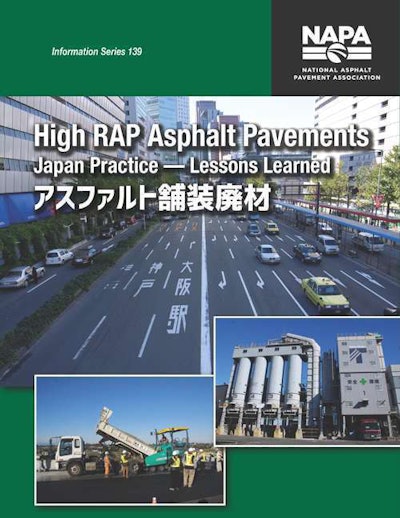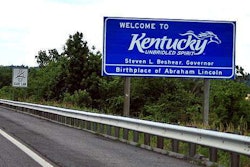The National Asphalt Pavement Association (NAPA) has released two books aimed at provided best management practices for using reclaimed asphalt pavement (RAP).
Best Practices for RAP and RAS Management (Quality Improvement Publication 129) provides details on pavement milling, inventory management, processing, sampling and testing of RAP and recycled asphalt shingles (RAS). Written by National Center for Asphalt Technology (NCAT) Director Randy West, the book also includes issues concerning production.

High RAP Asphalt Pavements: Japan Practice — Lessons Learned (Information Series 139) covers a 2014 industry scan tour of Japan that looked at the results of the use of high RAP in pavements. Written by West and NAPA Vice President for Engineering, Research, & Technology Audrey Copeland, the book also looks at the use of porous asphalt pavements in the country.

“The Japan tour highlighted ways to ensure pavement quality while using high levels of RAP,” West adds, “but mixes designed with more modest levels of recycled materials also benefit from best management practices.”
NAPA produced the books under a cooperative agreement with the Federal Highway Administration (FHWA). They are free and available as high-quality PDF documents through the NAPA Online Store at http://store.asphaltpavement.org.









